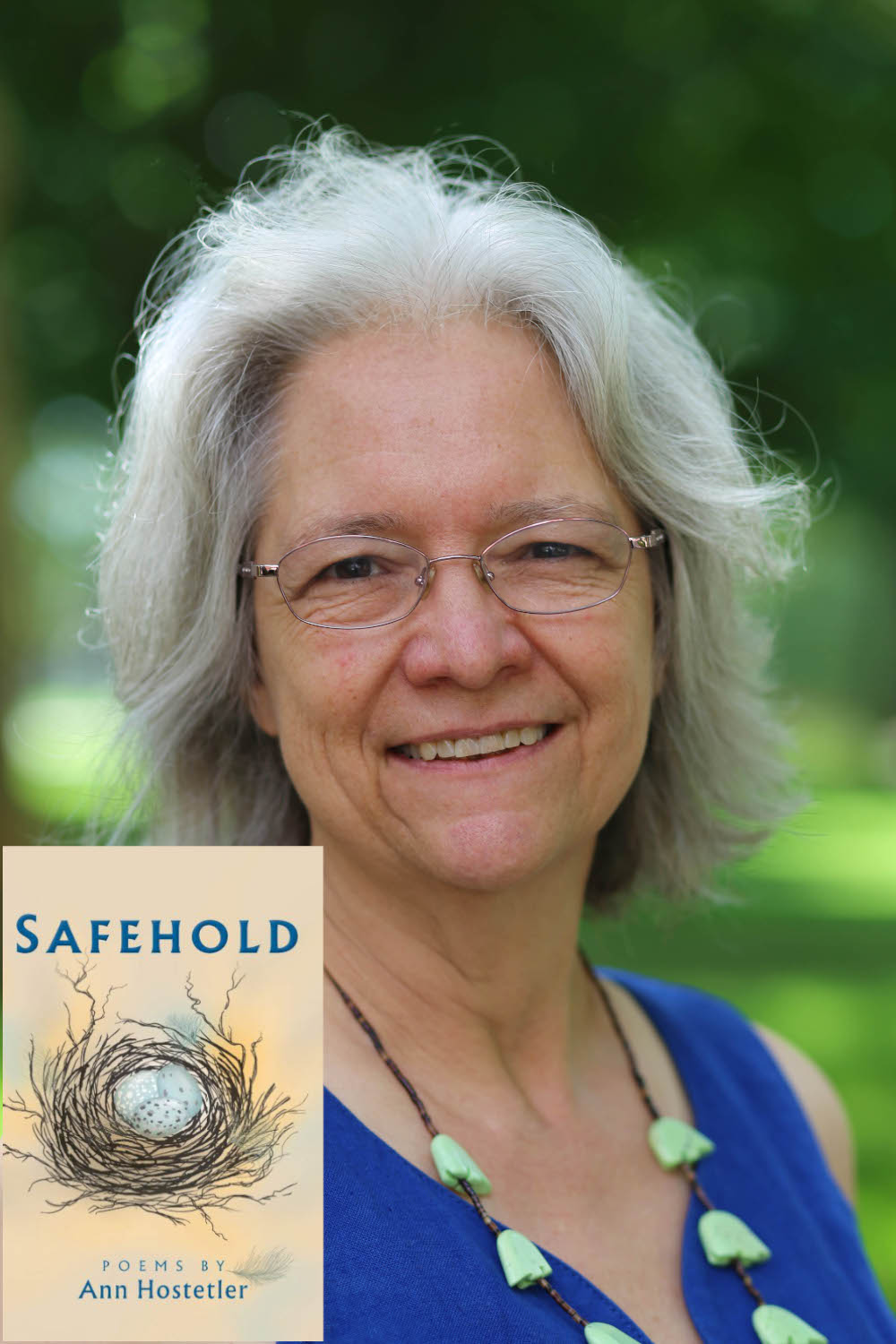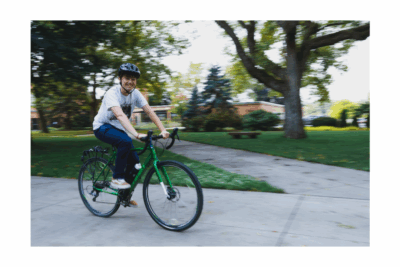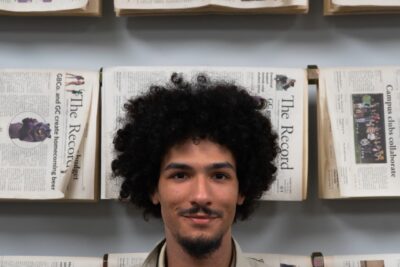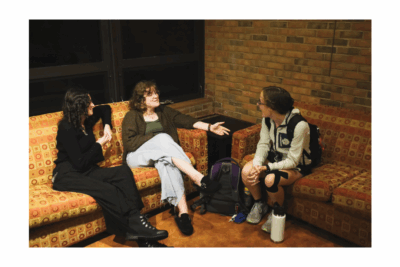Ann Hostetler finds her best voice on the page, writing poetry that “makes space for imagination” while inspiring her students at Goshen College to share words of their own.
“There were lots of pens and paper around the house,” Hostetler, professor of English, said of her childhood. “I just loved to read from a very young age, and I loved to write…the idea that words can change the world was exciting to me.”In her new book of poetry, “Safehold,” Hostetler shares a collection of poems, which she began writing in 2001 at the time of 9/11 and finished with the election of the 45th president in 2016. The poems of “Safehold” emerge from dissonance, while approaching the dilemmas of life with a faith perspective.
Hostetler shared the challenges and inspiration for this book along with glimpses into the writing process with the Record earlier this week.
Q: How did your interest in writing begin?
A: I think my mom was trying to amuse me one time and said, “Well, why don’t you write a poem?” So then, I discovered this absolute love for that. And so poetry, it’s always been a part of my life, sometimes other types of writing or even teaching, they’ll come in and take over the space of my brain. But for me, writing poetry has been a way to make sense of the world.
Q: How does poetry give you a voice that maybe other forms of writing do not?
A: It’s like another level of consciousness, and you have to be able to give yourself space
to write. It’s a different way of using your brain with language, trying to make space for the imagination, not only to express what you have to say, but to create a space that people can enter into and find that imaginative way of looking as well.
Q: And now you’ve written a new book of poetry, “Safehold.”
A: For a long time, I thought I couldn’t publish this book because there was so much pain in it.
Q: Where did the idea for the title, “Safehold,” come from?
A: They called it a place where you keep things secure — safe deposit boxes, a treasure box and yet there is a bird’s nest on the cover, which my friend came up with and shared with a designer, how much can a bird actually protect the basket? You know, you can’t.
A: I think the deeper stuff arises from doing the work of writing the poems itself. It’s a little bit like being in touch with your dream mind or your unconscious. Not like some medium was writing to you, but you find this place in your self from which you can use that particular kind of poetry writing consciousness.
Q: What are you hoping your students take away from these poems?
A: The thing that would make me happiest is if in reading something like this, they said, ‘Oh, well I can write about this in my life. I can do this too. I can find a language for this.’ My favorite poets are poets that make me want to write, so if I can do that to them, that would be the highest thing.
Hostetler uses her book “Safehold” to make meaning of the world, to grapple with over a decade of worldwide dilemmas on an intimate scale.
A: It’s always dicey when you’re writing out of your own experience because you don’t want to say ‘let me tell you about my personal life.’ But it’s more like, ‘Let me let me invite you in to the heart of hearts of my imagination, where we make meaning out of the world.’
This semester, Hostetler has a fellowship at Elizabethtown College in Lancaster, Pennsylvania, with the Young Center for Anabaptist and Pietist Studies. She is researching the letters of her father, John A. Hostetler, a writer and cultural ambassador for the Amish. Fifty-six years later, the Amish community still attributes his work as a primary source for communication amongst their faith group.
Hostetler will return to Goshen College for the spring semester and May term, but plans to retire at the end of this school year.




